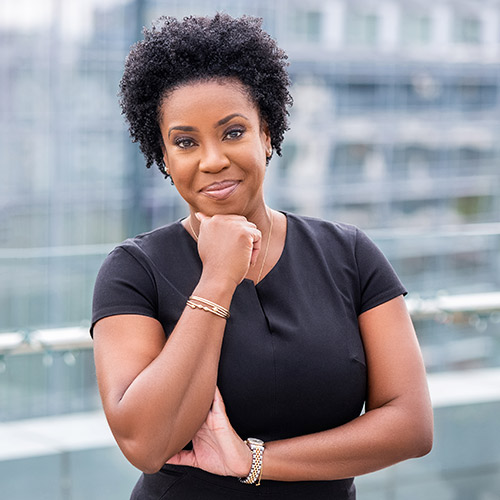By Gwyneth K. Shaw

Tiffani V. Williams ’04 applied to law schools with a bachelor’s degree in biology from American University, a master’s degree in public health from Yale, and an interest in finding how to stay in the field while no longer seeking a career in medicine. A lifelong East Coaster, she chose Berkeley Law because it was one of the few schools at the time that offered connections between the public health and legal spheres.
The transition wasn’t easy.
“It was difficult for me as a first-year because I thought about things very differently,” she says. “As a biology major, things were pretty black and white — I didn’t really have to think outside the box. I had to learn very quickly that surviving law school was not a science.”
Williams spent the summer after her first year at the East Bay Community Law Center’s (EBCLC) HIV/AIDS Law Project. There, she gained skills that boosted the rest of her career as a student.
“I was helping people with housing issues and Social Security issues, and it was this great, humbling experience,” she says. “It made me feel like I could both be a lawyer and do things to help people.”
A new era
Williams has fond memories of her Contracts professor, Robert C. Berring Jr.’74, a relationship that came full circle with him as interim dean by the time she graduated. She recalls admiring the beautiful view of San Francisco Bay as she drove to law school each day and still considers two of her classmates, Melissa Ingram (McDaniel) ’04 and Jason Belk ’04 among her closest friends.
“I ended up graduating in a very different place than how I started,” she says.
Memories of her time at Berkeley Law were sparked this summer, when the U.S. Supreme Court struck down the use of affirmative action policies in academic admissions. Williams’ class was one of the first to be admitted in the wake of California’s Proposition 209, approved by voters in 1996 and put into effect in 1998.
“It was not a secret to us that the number of students of color had decreased dramatically,” she says. “It’s not something that weighed on us, exactly, but I definitely carried that with me and was aware of it.
“The Supreme Court’s decision jogged my memory — I had almost forgotten about it, and the case brought it back for me.”
After graduation, she headed back home to Washington, D.C., thinking she’d be a traditional health care lawyer, and landed at Alston & Bird doing regulatory work. Slowly, she was introduced to the lobbying world as she interfaced more with clients. But she also found herself mulling a shift in direction to becoming an in-house counsel before moving to DLA Piper.
At the time, former Sen. Tom Daschle, a Capitol Hill power player, was helping to build a health care practice in the firm’s government affairs division and brought Williams into the unit. She found another professional gear there, and then a few years later joined the former Senate Democratic Leader as he set up The Daschle Group within Baker Donelson.
Rising star
A born and bred Washingtonian, Williams has thrived in the lobbying world. Last year The Hill, a must-read for political insiders, named her one of the city’s top lobbyists.
Even with the twists and turns along the way, Williams feels grateful for the opportunity to be in this field for nearly 20 years. In the U.S., she adds, the political arena is the place to make a difference, even if the road through all three branches of government can get bumpy.
Her focus on health care has been a through line, as has her commitment to broadening access — a passion rooted in her upbringing by Jamaican immigrant parents, nurtured at EBCLC, and fully flowered in her current position at The Daschle Group as senior vice president & public policy adviser.
“That’s what brings it all together for me,” Williams says. “I enjoy working with clients that are trying to improve our health care system for the better and ensure that all of us, particularly people of color and those in vulnerable communities, have access to affordable health care.
“I think it’s my north star.”